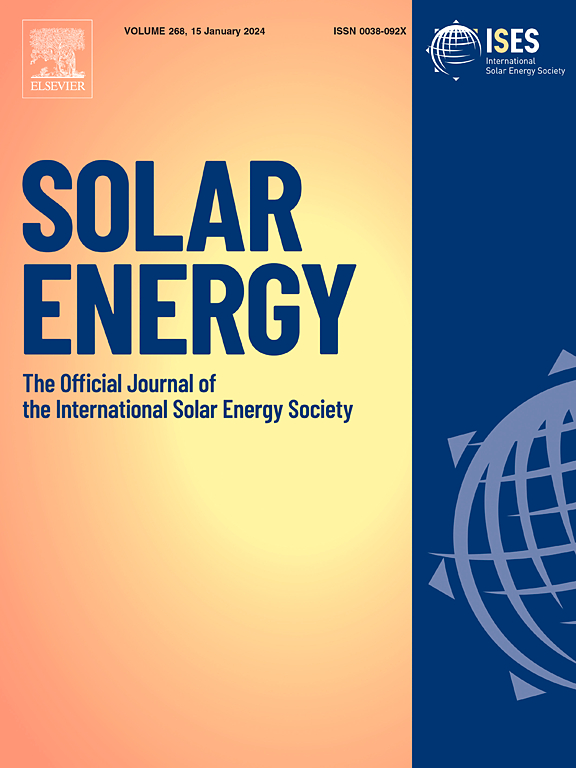Wind-induced vibration response and suppression of the cable-truss flexible support photovoltaic module array
IF 6
2区 工程技术
Q2 ENERGY & FUELS
引用次数: 0
Abstract
The flexible photovoltaic module support system, which can be used in complex and long-span environments, has been widely studied and applied in recent years. In this study, the wind-induced vibration characteristics and the suppression measures of a 35-meter-span cable-truss support photovoltaic module system array are studied. Firstly, based on the similarity theory of the wind tunnel test, the scaled aeroelastic test model is made and verified. Then, the wind-induced vibration characteristics and group shelter effects of the array are studied and the influence of the initial prestress of the main cables is discussed. Finally, the effective wind suppression measures are proposed by adding the connection cables and inclined cables and verified by the wind tunnel test. The results show that the maximum wind-induced response of the flexible PV array appears in the first row of the windward row under different wind directions, the wind-induced vibration in the middle region is significantly reduced due to the shelter of the PV array and the amplitude of wind-induced vibration in the wake region will be amplified. At 0° wind direction, the wind-induced vibration shelter effect is more obvious. The improvement of the initial prestress of the main cable is ineffective in improving the wind resistance. When no wind suppression measures are taken, the critical wind speed of the new photovoltaic system is 36.1 m/s, which can meet the requirements of most inland areas. Wind suppression measures can effectively improve the wind resistance of photovoltaic arrays, and the critical wind speed can reach 45 m/s.
电缆桁架柔性支撑光伏组件阵列的风致振动响应与抑制
近年来,可用于复杂和大跨度环境的柔性光伏组件支撑系统得到了广泛的研究和应用。本研究对 35 米跨度索桁架支撑光伏组件系统阵列的风致振动特性及抑制措施进行了研究。首先,基于风洞试验的相似性理论,制作并验证了按比例气动弹性试验模型。然后,研究了阵列的风致振动特性和群体遮蔽效应,并讨论了主缆初始预应力的影响。最后,通过增加连接电缆和斜拉索提出了有效的风抑制措施,并通过风洞试验进行了验证。结果表明,在不同风向下,柔性光伏阵列的最大风致响应出现在迎风面第一排,由于光伏阵列的遮挡,中间区域的风致振动明显减小,而尾流区域的风致振动振幅将被放大。在 0° 风向下,风致振动的遮挡效应更为明显。提高主缆的初始预应力对提高抗风能力无效。在不采取抑风措施的情况下,新型光伏系统的临界风速为 36.1 m/s,可以满足大部分内陆地区的要求。抑风措施可有效提高光伏阵列的抗风能力,临界风速可达 45 m/s。
本文章由计算机程序翻译,如有差异,请以英文原文为准。
求助全文
约1分钟内获得全文
求助全文
来源期刊

Solar Energy
工程技术-能源与燃料
CiteScore
13.90
自引率
9.00%
发文量
0
审稿时长
47 days
期刊介绍:
Solar Energy welcomes manuscripts presenting information not previously published in journals on any aspect of solar energy research, development, application, measurement or policy. The term "solar energy" in this context includes the indirect uses such as wind energy and biomass
 求助内容:
求助内容: 应助结果提醒方式:
应助结果提醒方式:


